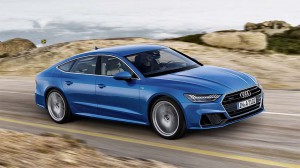Fiat Chrysler’s Ram truck division has traditionally been an industry laggard when it comes to quality and reliability, but it led all mainstream brands including Toyota, and even luxury marque Lexus in the latest J.D. Power APEAL study.
While quality clearly matters, it isn’t everything, according to the study, which focuses on things like design, performance and features to see what emotionally connects with car buyers. And many of the brands that lead in the APEAL study – which is Power shorthand for Automotive Performance, Execution and Layout – typically don’t do very well in the research firm’s other frequently quoted Initial Quality Study, or IQS.
“You can own a vehicle that is as reliable as a Swiss clock, but there may be nothing in particular about it that will get you to remember it fondly,” said Dave Sargent, the head of J.D. Power’s automotive operations.
(Koreans dominate latest JD Power Initial Quality Study. Click Here for the full story.)
In many cases, Power research shows, owners are more likely to recommend vehicles that have high emotional appeal than those that have good quality but little emotional appeal.
It’s certainly possible to have both, and Porsche, a traditional leader in the IQS, ranks number one in the 2019 APEAL study, as well. Genesis, which was the top-ranked brand in the IQS study released last month, came in third in the new APEAL report. But BMW, which is the second-ranked brand in APEAL, was well below the industry average in terms of quality, according to the IQS.

While Ram typically fares poorly in the Power IQS quality study, it was the top mainstream brand in APEAL.
Audi and Volvo, other brands with quality and reliability issues, rounded out the top five in the new APEAL study.
The contrast between the two studies is even more significant when looking at mainstream brands. Of the top five in APEAL — Ram, Dodge, Mini, Volkswagen and Ford – only Ford scored above industry average in IQS. Meanwhile, Kia and Hyundai, which ranked second and third in quality in the IQS, came in below industry average in APEAL.
Perhaps nowhere is the gap between the two studies more apparent than with Toyota and its luxury arm, Lexus. The Japanese brands have been quality benchmarks for decades but both lagged key competitors in the APEAL study. Lexus was ranked behind such mainstream brands as Dodge and Ram and Toyota came in just 25th of the 32 brands covered by the new study.
(Japanese brands losing their grip on vehicle reliability. Click Here for more.)
Not surprisingly, luxury brands dominated the APEAL chart, Ram the only mainstream brand to crack the top 10. That said, the gap between luxury and mainstream marques has been narrowing, according to Power.
“The average APEAL score for luxury brands is 853 points, compared with 818 for mass market brands,” noted a summary of the study. “This gap of 35 points is the narrowest in the study’s history and is down from 50 points just three years ago.”
On average, scores in the new study were up for the fifth year in a row, and that reflects several factors. For one thing, manufacturers are putting more emphasis on design and performance. And while APEAL doesn’t directly measure quality, new technologies tend to be working better and are easier to use.
One of the biggest factors, added Power’s Sargent, is the steady increase in vehicle content, especially electronic safety and infotainment systems.
As vehicles get more content, people are more happy with them,” he said during a telephone interview. “The more stuff the better”
In all, 22 of the 32 brands followed by the new APEAL study had improved scores over the 2018 study.
Along with overall brand scores, the 2019 APEAL report looked at how products fared in individual vehicle categories. Ford led the industry, nabbing wins in five product segments, including its big F-150 pickup and Lincoln Navigator SUV. BMW had three segment winners, while General Motors, Honda, Nissan, Toyota and Volkswagen AG each had two. Audi’s A7 was the highest-ranked vehicles overall.
(Subaru, Lexus top Power Owner Loyalty Study. Click Here for more.)


